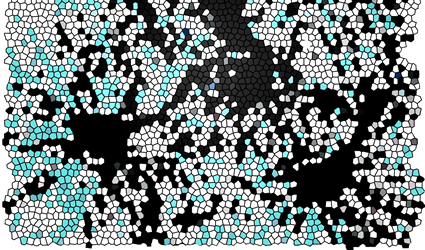

In school we teach separateness rather than interconnectedness; we see a world defined by duality rather than unity. As a result we promote an idea of community as a collection of discrete, autonomous individuals rather than a complex network of beings who are inherently interconnected and inextricably part of the ecosystems on which all life depends. (Yagelski, 2011, p. 17)
Crisis
Similar to Heidegger, Robert Yagelski (2011) chipped away at Cartesian thought; however, a part of Yagelski’s argument relied on a metaphysical assumption when considering the concept of mainstream writing. Yagelski argued Cartesian dualism serves as the epistemological foundation of education and that education is merely a process of indoctrination and cultural reproduction from which writing instruction serves as a means to promote ontological and epistemological assumptions. Mainstream education and writing instruction merely reinforce Cartesian dualities such as self-other, subject-object, and mind-body, which lead to an ideology of separateness and individuality. Cartesian ways of thinking about writing extend from the College Board state tests to the classroom. State-mandated tests, for instance, simply communicate to students that “good” writing involves following conventions of form rather than understanding the importance of rhetorical context. This pedagogical focus on form versus content also assumes that “a stable meaning can be encoded in a text by following certain rules and applying certain conventions” (p. 23). It is little wonder, then, that handbooks are best-sellers in the field of composition.
Nonetheless, Yageleski (2011) pointed to Doug Downs and Elizabeth Wardle (2007) who challenged the form and content binary by offering a writing studies-based pedagogy in which writing is not independent of content. Downs and Wardle argued, for instance, that many misconceptions undermine writing instruction including: “writing can be considered independent of content; writing consists primarily of syntactic and mechanical concerns’” and so forth (pp. 554–5). Yageleski, however, argued that these characterizations of writing are not simply misconceptions—instead, they demonstrate deep-seated Cartesian thinking. In addition to Downs and Wardle, Yagelski pointed to eco-composition as a promising progressive pedagogy; however, he argued that its peripheral status in the field is indicative of the dominance of Cartesian thinking. He maintained that our prevailing conceptions of writing make it difficult for compositionists to reconcile writing instruction with external matters such as “global warming or environmental racism” (Yagelski, 2001, p. 33).
Yagelski’s (2011) perceived peripheral status of eco-composition may not necessarily indicate the prevalence of Cartesian thinking, though. When considering editors Sidney Dobrin and Christian R. Weisser’s (2001) collection of texts in Ecocomposition: Theoretical and Pedagogical Approaches, for example, Maureen McKnight (2001) pointed to many essentialist tendencies regarding nature, as well as the collection’s “resistance to poststructuralism” (p. 930). Furthermore, Yagelski seemed to have relied on an essentialist characterization of mainstream writing as the basis for his argument. What exactly qualifies as mainstream writing?
Despite the overgeneralization of mainstream writing, which screens out pedagogical difference in the field, Yagelski (2011) was at his best when he moved away from generalities to particularities. Yagelski pointed to a report of the National Commission on Writing (2003), for example, which warns “American education will never realize its potential as an engine of opportunity and economic growth until a writing revolution puts language and communication in their proper place in the classroom” (p. 3). Yagelski argued that the connection between writing instruction and capitalism is not even questioned as a goal worth seeking. Moreover, this connection “implicitly rejects the possibility that writing instruction—and education more generally—can serve larger progressive or even Utopian ends that may diverge from the values of a consumer-driven culture” (p. 48). In short, “we teach writing in order to help our students eventually make the economy work better” (p. 48). Writing instruction simply serves capitalist interests, which relies on the obsessive repetition of Cartesian thinking. Yagelski’s insight may certainly prompt compositionists to carefully reconceptualize students’ writing, but it might also prompt compositionists to consider the larger ideological implications of their pedagogies. Yagelski may prompt the field to develop the affective capacity to listen to the raison d’etre it relies upon to affirm the importance of writing and pedagogy.